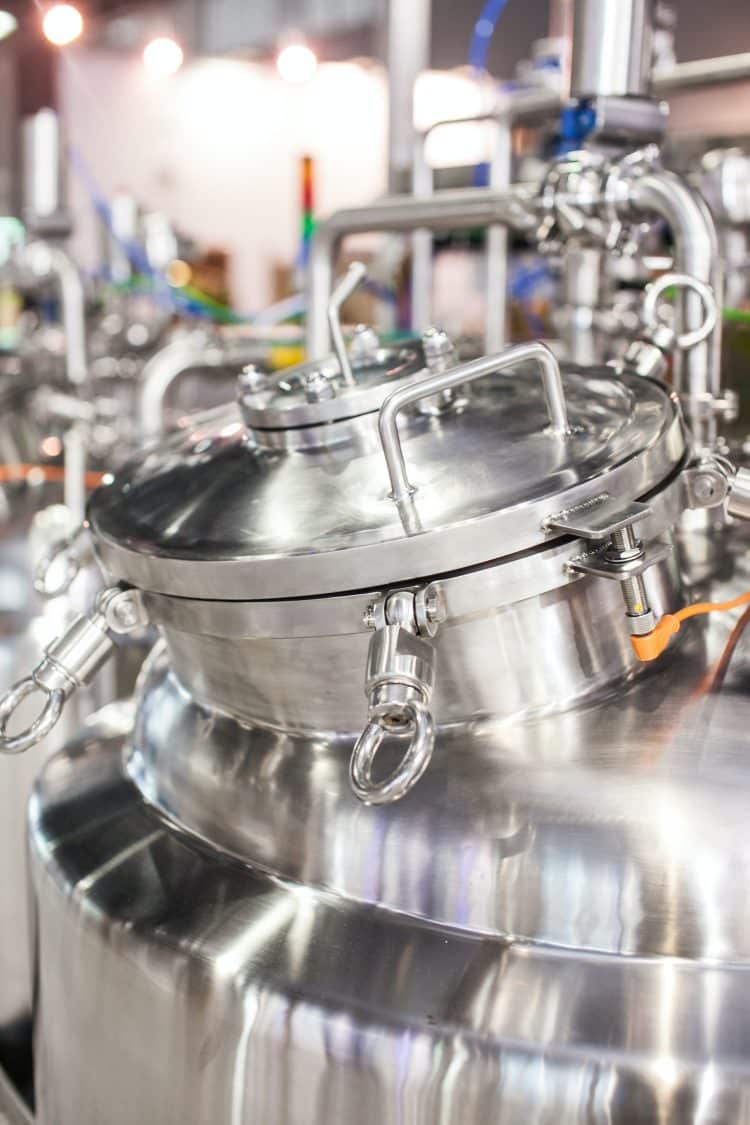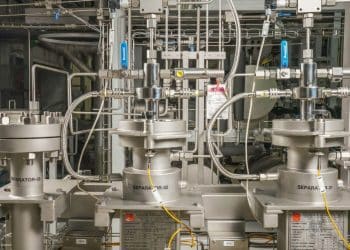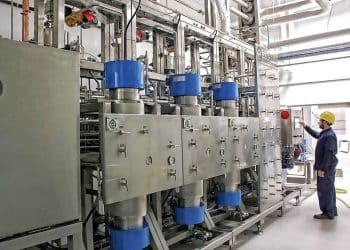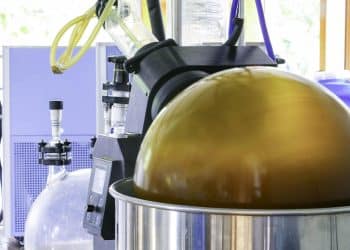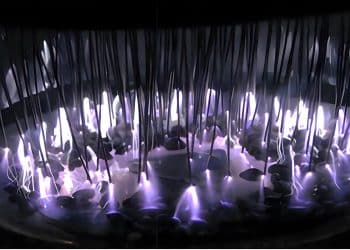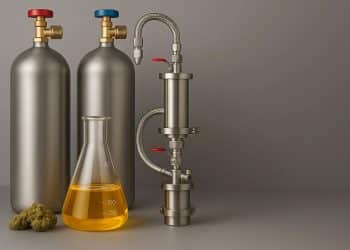Extraction procedure relies on various solvents and extraction machinery to effectively isolate various compounds from plant matrix.[1] Many different solvents can be used and, depending on operating temperature, pressure and solvent polarity it is possible to maximize the extraction efficiency. Hydrocarbon solvents are formed only by hydrogen and carbon atoms. Among other hydrocarbons, butane, propane and mixtures of those can be effectively employed for plant based extraction by using generally closed-loop systems useful for solvent recycling
How to Construct a Closed-Loop System
Every closed-loop system must include three components. [2] The first, a solvent reservoir, is where the hydrocarbon solvent is stored, heated and transfered into the plant materials. The second, a material column, is what holds the plant material or the product to be extracted. And finally, the collection vessel which stores the extracted material. With a closed-loop system, the hydrocarbon solvents may then be transported back to the solvent reservoir to be reused. This is the most basic set up, but it is also possible to increase efficiency by adding components like filters, heaters, chillers, and vacuums at various stages of the process to improve the extractor performances. These kind of machinery are made of stainless steel to reduce the corrosion risk, and improve the resistence towards high temperatures and pressures. This kind of material is extremely hygienic because it is really easy to clean, in order to reduce the presence of unwanted substances in the final extract.
Advantages and downsides of Closed-Loop Systems
Depending on what is being extracted, closed-loop systems provide various advantages such as the possibility of regulating both extraction temperature and pressure, minimizing the loss of volatiles or the degradation of thermolabile compounds.
Closed-loop systems can be used for either solid-liquid or liquid-liquid extraction and they can work effectively with plants themselves, or with plant byproducts like saps, oils, or powdered material. Additionally, since the system is closed, solvents can be recycled continuously and used for multiple extractions, reducing the release of volatile solvents in the air.
Hydrocarbon solvents such as butane and propane are highly flammable, and while a closed loop system provides more safety, proper precautions are required: the machinery should always contain safety valves to release pressure build-up and it should be placed in a controlled zone, with the necessary areation systems and oxygen levels alarms. Closed-loop systems can maximize the extraction efficiency saving money in the long run. Nevertheless the automation of these kind of machineries is expensive as well as the construction of large scale closed-loop systems. When incorporating the cost of servicing and staffing, this amount can run up quickly.
References
Lau, E. V. et al. Extraction Techniques for Polycyclic Aromatic Hydrocarbons in Soils. International Journal of Analytical Chemistry, (2010); 1–9. https://doi.org/10.1155/2010/398381 [Journal impact factor = 1.69 ] [times cited = 139]
D. Cumings, et al. Systems and Methods for Closed Loop Solvent Extraction and Purification. United States Patent Application Publication, Pub. No.: US 2017/0002292 A1, (2017)
M. Kulazynski, et al. Supercritical Fluid Extraction of Vegetable Materials. Chem. Chem. Technol., (2016); 10 (4), 637-643. DOI: 10.23939/chcht10.04si.637[Journal impact factor = 0.78]
Image: https://unsplash.com/photos/h20daABLd08
